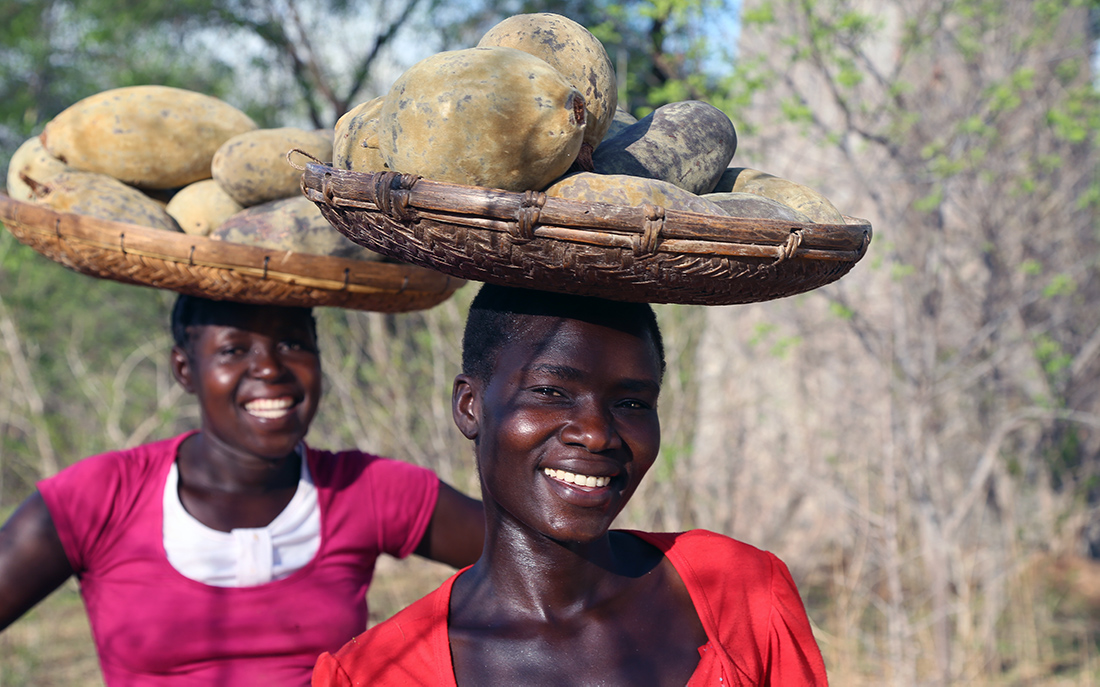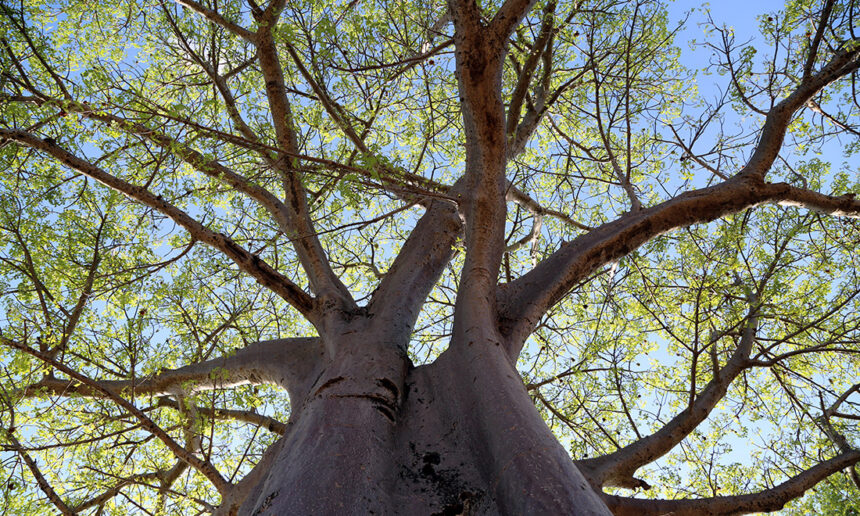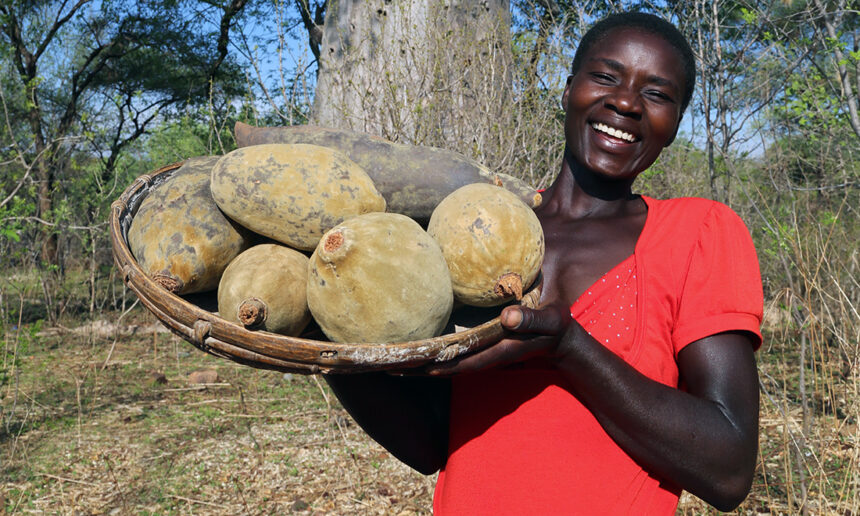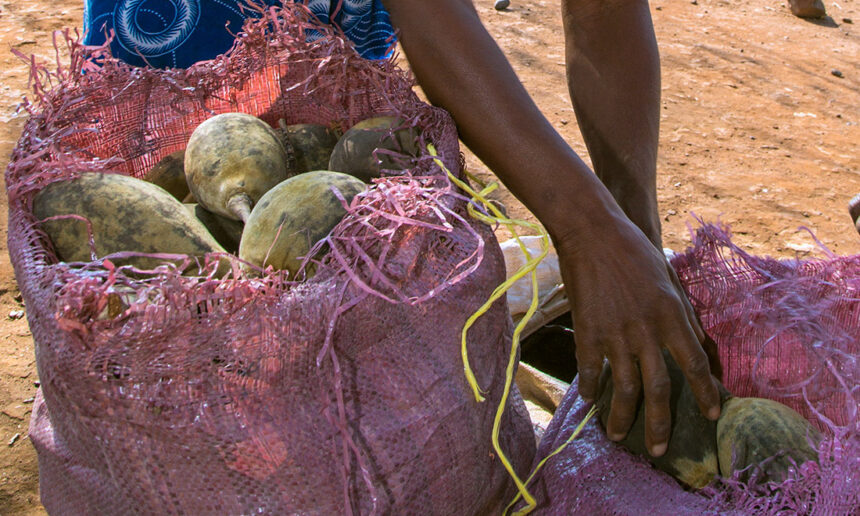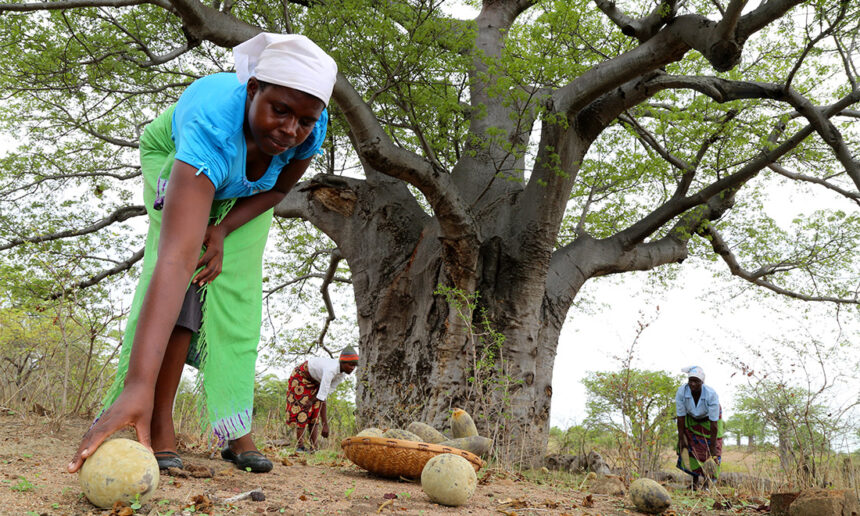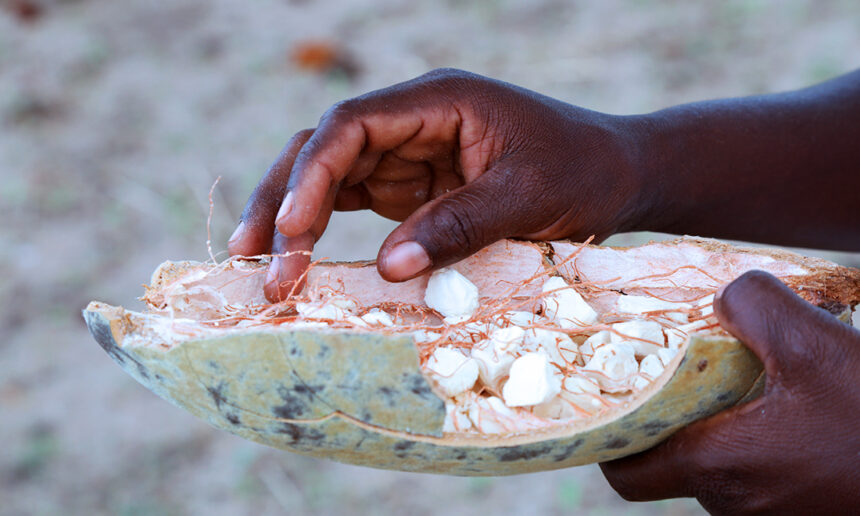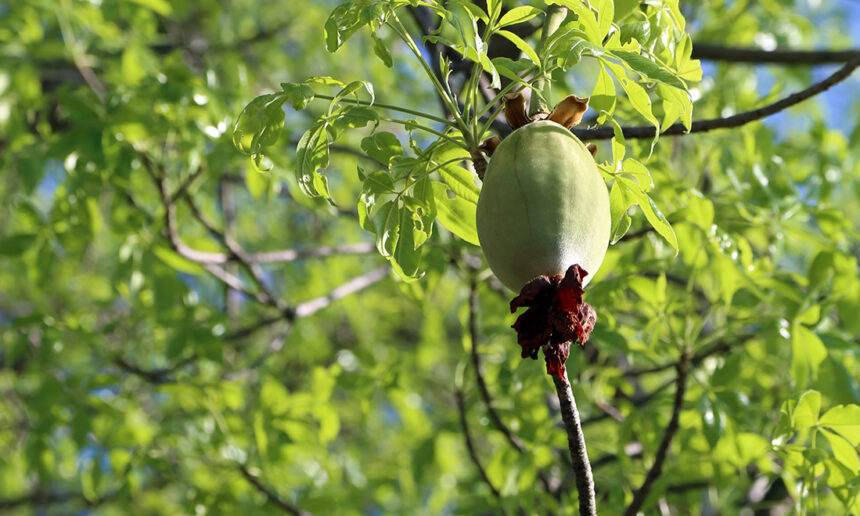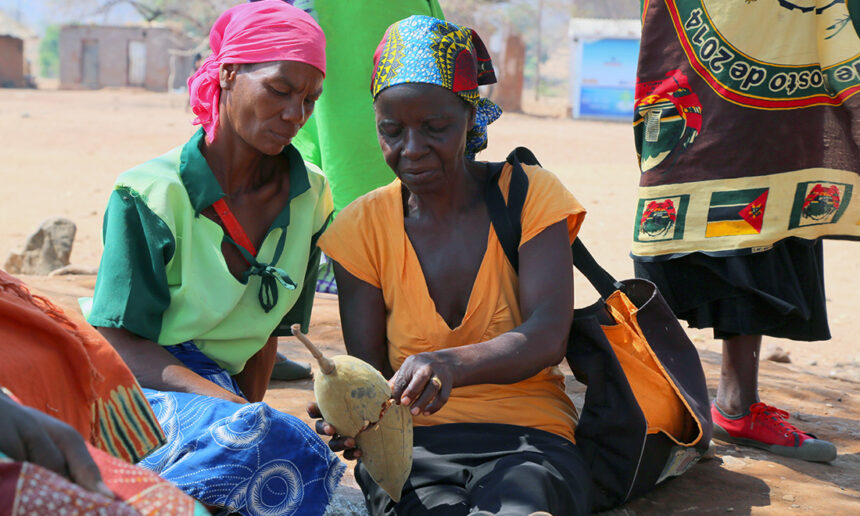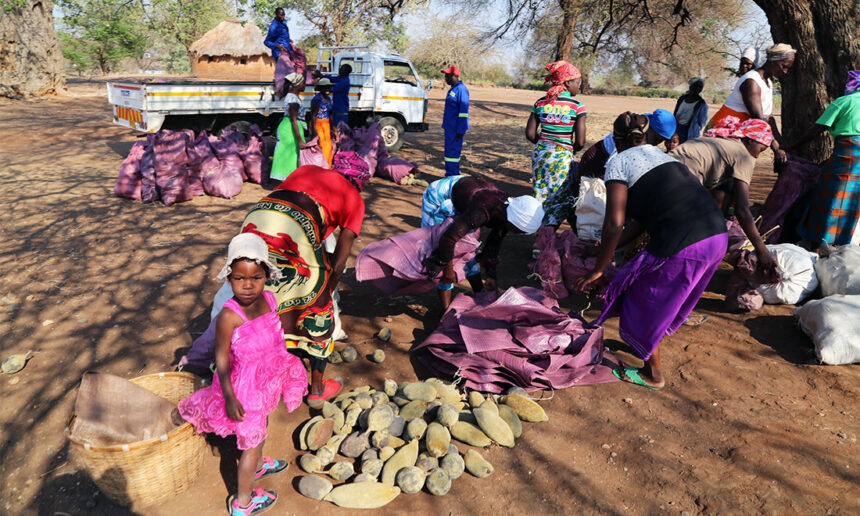Photo: © David Brazier
Wild harvested baobab as a new source of income that empowers women and raises awareness for healthy nutrition.
The baobab tree, which grows throughout Sub-Saharan Africa, is a botanical wonder that defies easy categorization. Strictly speaking, it’s not a proper tree, but a colossal succulent species. It’s this very distinction that lends it its distinctive appearance. The “trunk” is notably thick and serves as a reservoir for water. Baobabs thrive under harsh, semi-desert conditions where other trees species struggle to survive.
Appreciated not only by the baboons
Typically, local farmers dismissed its fruit as mere “monkey food,” fit only for the unpopular baboons. However, this perception is far from accurate, as the baobab fruit is, in many aspects, a “superfruit” whose potential has only recently been acknowledged, last not least thanks to the African Baobab Alliance.
This remarkable fruit is perfect for vegan cuisine, serving as an excellent substitute for eggs in baking and as a base for various smoothies. It offers a fruity, slightly acidic taste, contains considerably more vitamin C than a lemon, and boasts a range of natural minerals, including potassium and calcium. Baobab is marketed in the form of a white, cotton-coloured powder that not only has an appealing appearance but also offers a delightful taste, a characteristic not shared by all the superfoods that garner attention in our country.
The production of baobab powder is astonishingly straightforward: villagers gather the fruits from the wild, merely needing to collect them from the ground. The fruit’s age is inconsequential, as the thick skin effectively preserves its contents, ensuring their longevity. Inside, one finds the white, already desiccated pulp, requiring only crushing into powder and packaging. While the drying and storage of many products present significant challenges and lead to considerable losses, nature effortlessly takes care of these aspects when it comes to baobab.
Creation of a market which serves people and planet
The African Baobab Alliance seeks to create a market where there was none before.The baobab trade benefits rural communities, in particular women. The reason is that it takes up to 75 years for a baobab tree to yield its first harvest – by far too long to set-up any commercial baobab plantations. Baobab is harvested wild by the villagers who happen to live nearby.
The African Baobab Alliance has set ambitious goals what to achieve by 2030:
- Empowering rural Baobab harvesters across Africa: To benefit over one million rural African women from the harvest and sale of Baobab fruit.
- Conserving Baobab trees for future generations: Conserve and manage 10 million hectares of Baobab woodland in Africa
- Absorbing carbon through Baobab trees: To sequester 300 million tonnes of carbon annually in actively managed Baobab woodland.
- Economic growth through Baobab value addition: To increase the GDP in African countries by more than a billion USD.
A production process as easy as 1-2-3
The production of baobab powder is astonishingly simple and effective: Villagers gather the fruits from the wild, once they have fallen on the ground. The thick skin effectively preserves its contents, so there is no rush. Inside, one finds the white, dried pulp, which only needs to be crushed into powder and be packaged. While the drying and storage of many agricultural products pose significant challenges and lead to considerable harvest losses, the baobab fruit is different. It’s almost ready to use.
Project Evaluation
Give us feedback!
How do you like the project? Answer two questions and give us some quick feedback!
Create your own evaluation with the GOOD Scorecard!
By filling out our online scorecard, you provide us with valuable feedback. You can also download the scorecard and evaluate any any project of your choice.
Contribution to the 17 Global Goals
No Poverty
Fighting poverty in rural Southern Africa
Good Health and Well-Being
Healthy nutrition for the participating families, but also for the clients in the export countries
Life on Land
Protection and regeneration of baobab forests
Decent Work and Economic Growth
Creating new jobs through wild harvesting and processing of the baobab fruit
Gender Equality
The vast majority of baobab harvesters are women
Responsible consumption and production
The baobab fruit is processed as a 100% natural and pesticide free product
Climate Action
Baobab trees are a carbon sink
Zero Hunger
Better supply of important vitamins and minerals
Video
Images
Photos: © David Brazier


